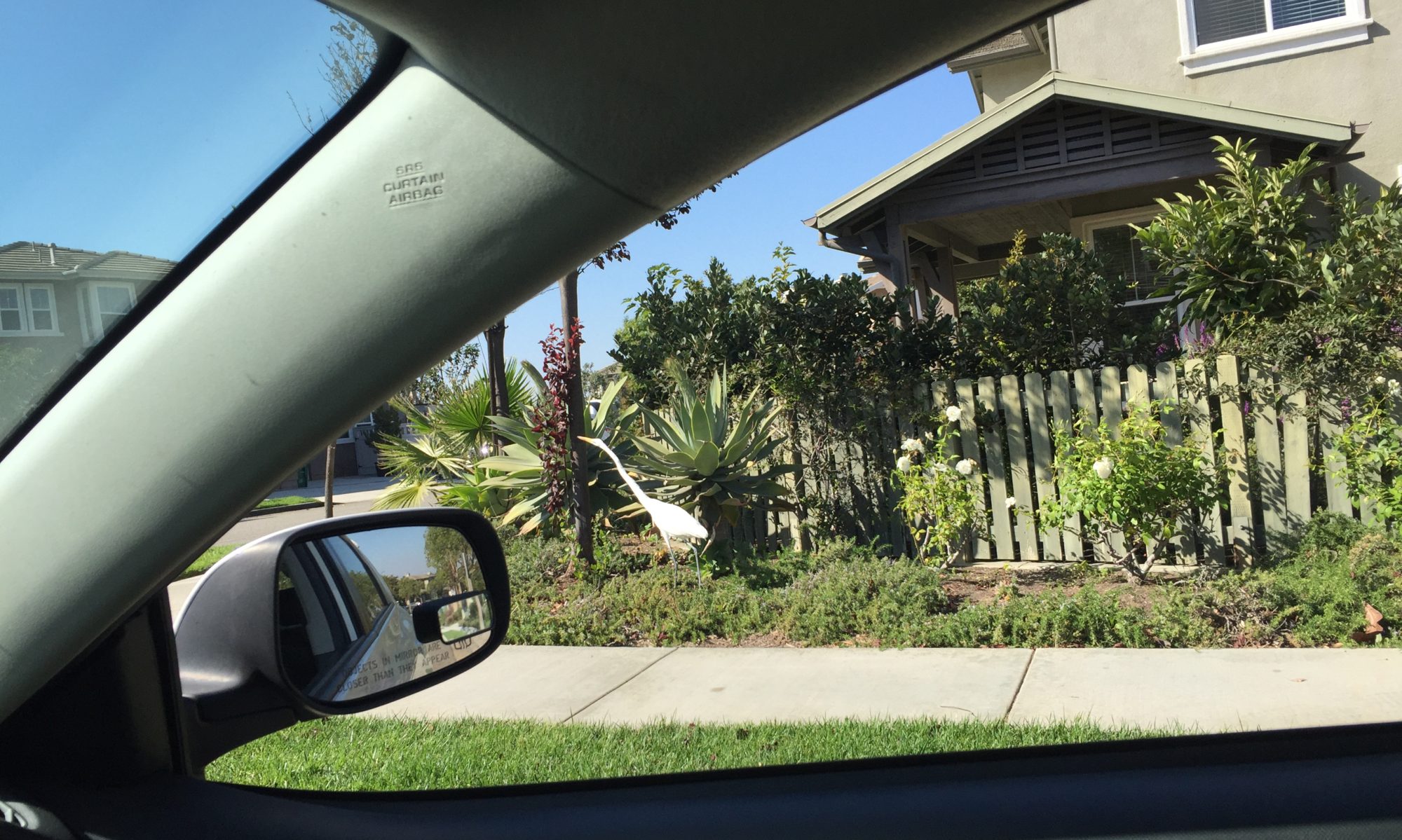No tree says flowering is better
than bearing fruit, just lovers, who embrace
the faith we belong to homo sapiens,
that nostalgic species, the one which takes
the egotism of dying for its own,
longing for perfect flowers and fruit.
Like hummingbirds, themselves deciduous
leaves which perish if trapped in airlessness,
they flit from one lush shrub to another,
sucking at salvia and drooping fushia,
drones darting off to persist, if at all,
in retinal afterglow, green for red,
absence for the flutter of a wing,
a heartbeat for a spasm.
***
Back in the days when I practiced literary criticism for a living, I admired readings of a poet’s work which successfully identified its returning themes, and especially recurrent images and metaphors. The above poem is one example of métaphore filée, in English a conceit — no relation to ego, to be sure.
That may well be what the play of motif and self-referentiality looks like from the outside. From within, this “auto-intertextuality” (ta-dum!) can feel like a debilitating lack of creative energy, abject surrender to ones obsessive tics and manias. Repetition as death.
Time, I guess, will tell if this conceit lives on.
As for how I came to literary criticism, I have been perusing my archive of diaries lately, those that have survived a precarious vagabond, transnational existence. This is how I can situate the approximate moment at which I took the turn which led to that particular slough of despond. I was lucky enough to benefit from a third year abroad in Grenoble. By the time I returned from France, in the summer of 1966, the deed, I might even say the deal, a diabolical one, was done. I no longer thought of myself as a poet or writer, rather as someone who knew a lot about books. The first assignment returned to me in a senior English class bore, ironically perhaps in red pencil, a remark something like: “now you are learning to write like a literary critic”. The grade was A+. A kiss, if not of death, at least of treachery.
We all have to make a living somehow. At that point in time, though still resisting graduate school and apprehensive I would soon face a choice between jail and exile, I saw that it might be possible, providing I avoided incarceration, to become a teacher and earn slightly more than I could performing the menial labour to which I was accustomed. That at least was the pay scale in force in the mid-sixties. By the time I retired from my academic career, the disparity in income between someone who makes things or at least moves them around and someone who fabricates parcels and packets of knowledge and passes them on to students had radically widened.
It could be argued das ist auch gut so: this is as it should be in an knowledge economy. Value is now produced more by making things up than by making them. The financial value of what academics make up may well be grossly inferior to that of what financiers make up, but the academic product still resides on the prosperous side of the boundary between what materially is, and what is fiction. The advantage accruing to those who produce fictitious capital is nonetheless exponentially greater than that falling to authors of mere academic fiction, let alone fiction itself, and even lower down the food chain, poets. In this world, the value of the poem above approaches nil.
